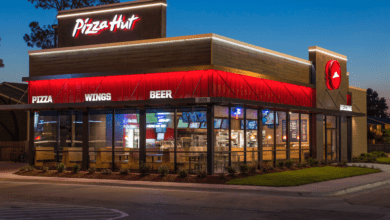
According to statistics from the HSE, stress, depression or anxiety accounted for 55% of all working days lost due to work-related ill health in 2019/20; some 17.9 million lost working days. Worryingly this report was published in November 2020 featuring pre-pandemic data. We’re all now navigating a whole new set of mental health concerns borne out of the pandemic itself and for those working in the UK hospitality sector, the impact remains intense. Employers need to take urgent steps to support their teams through this mental health emergency.
Employee wellbeing isn’t just limited to the workplace. Poor mental health is often the result of overwhelming personal issues, which can then impact on an employee’s ability to cope and their performance both in and outside of work. Life can prove a struggle at any point in time and especially within a typically fast-paced culture that results in people working long, irregular shift patterns and staying constantly connected through mobile devices. This pace can lead to stress and burnout. Overlay the financial anxieties associated with the pandemic such as concerns over eligibility for furlough, isolation as a result of shielding and long term fears for job security and it is no wonder that hospitality workers have been hit hard by the current crisis. Many have experienced problems for the first time and those who were already struggling are finding things even harder.
Navigating through these challenges requires skills and strategies, which is why forward-thinking organisations are trying to build resilience in their workforce so that employees develop skills to manage workplace stress throughout 2021 and beyond.
Signs of stress in an employee
A change in the way someone acts can be a sign of stress, for example they may:
• be reluctant to log on or not attending virtual meetings
• appear more twitchy or nervous
A change in the way someone thinks or feels can also be a sign of stress, for example:
• mood swings
• being withdrawn
• loss of motivation, commitment and confidence
• increased emotional reactions – being more tearful, sensitive or aggressive
What is Resilience?
Personal resilience refers to how effectively you handle difficult experiences in your life. It is often described as the ability to ‘bounce back’ and comfortably carry on in the midst of adversity. It also involves being able to effectively regulate your thoughts and emotions, as well as perceiving challenging situations as an opportunity, not a personal threat.
As employers build and improve workplace culture and resilience, they also seek ways to address workplace stress and mental health. When addressed, employers build a resilient workforce, employees handle work stress better, and develop protective factors against stress. There are other benefits too:
- Resilience is associated with greater job satisfaction, work happiness, organisational commitment and employee engagement.
- Raising resilience contributes to improved self-esteem, sense of control over life events, sense of purpose in life and improved employee interpersonal relationships.
- Employers reap the rewards of increased productivity.
Developing Resilience
Since we know that being resilient is such a helpful trait to have, the next logical question is: How do we develop it? A good way to think about feeling well and in control is relating psychological and physical wellbeing to that of the water in a reservoir. In this sense, wellbeing is dynamic, it is constantly being drained and topped up in various ways. Life events such as the pandemic, relationship breakdowns, changes in job role and locations, can all be a drain in your reservoir of wellbeing and be the cracks in the dam.
Things like poor communication, feeling isolated, lack of training, lack of supervision and support, can also drain employee psychological wellbeing. Of course, employees are affected differently by those factors in terms of what is likely to drain their reservoir of wellbeing.
The impact of these pressures is likely to depend upon:
- The intensity of the situation
- The employee’s individual personality
- The support and coping skills that the employee can readily access and draw upon
If left unattended, each of these sources of pressure and their combined effect can cause a stress reaction and unlike pressure, stress is never a good thing.
However, it is not possible to design the perfect work or living environment where there aren’t any sources that may drain our wellbeing. So, it is important to work proactively to repair the cracks in the dam and avoid long term exposure to stressful situations as much as possible.
Of course, like a real reservoir, the wellbeing reservoir has in-flows as well as out-flows. Therefore, it is important to recognise and implement positive sources that enable employees’ reservoirs to be topped up.
Take care of your body. Self-care may be a popular buzzword, but it’s also a legitimate practice for mental health and building resilience. That’s because stress is just as much physical as it is emotional. Promoting positive lifestyle factors like adequate nutrition, ample sleep, hydration, and regular exercise can strengthen your body to adapt to stress and reduce the toll of emotions like anxiety or depression.
Practice mindfulness. Yoga or meditation can also help people to deal with situations that require resilience. When you meditate you focus on the positive aspects of your life and recall the things, you’re grateful for, even during times of distress.
Avoid negative outlets. It may be tempting to attempt to mask your pain with alcohol, drugs, or other substances, but that is like putting a bandage on a deep wound. Focus instead on giving your body resources to manage stress, rather than seeking to eliminate the feeling of stress altogether.
Be proactive. It is helpful to acknowledge and accept your emotions during hard times, but it’s also important to help you foster self-discovery by asking yourself, “What can I do about a problem in my life?” If the problems seem too big to tackle, break them down into manageable pieces.
Seek Help. Getting help when you need it is crucial in building your resilience. For many people, using their own resources and the kinds of strategies listed above may be enough for building their resilience. But at times, an individual might get stuck or have difficulty making progress on the road to resilience. The pandemic has presented us all with complex issues we may never have encountered before. Therefore, access to personalised on demand advice and support from qualified mental and physical health practitioners, as well as access to financial and legal experts is key to overcoming the very specific struggles being faced during these unprecedented times.
We’re proud that we’ve been able to make a difference to a number of nationwide bar chains and restaurant groups, including Prezzo restaurants, during such a tough shift. We’re providing those working in front of house and back of house roles, everything from a friendly, impartial ear, to access to specialist guidance. With the BHSF Employee Assistance Programme (EAP), they can connect to a 24/7 telephone counselling helpline and speak in confidence to an accredited counsellor for advice.
To find out more about the tailored support that BHSF can offer to your teams, visit: www.bhsf.co.uk
Tracey Paxton is BHSF Psychological Services Managing Director and has extensive experience of managing both public and private sector employee wellbeing services. She has 30 years’ experience working within the NHS as a practicing clinician and senior hospital manager. She has an MSc in Cognitive Behavioural Psychotherapy and has delivered a range of mental and physical health and wellbeing training.
















